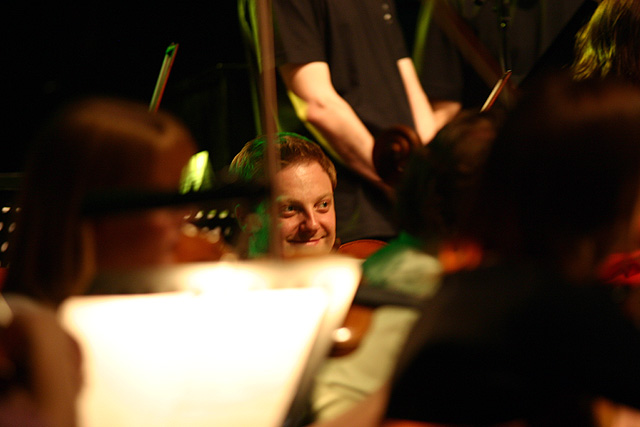This morning I spent two hours rehearsing Alfred Schnittke’s String Trio (1985). It’s an enthralling work, at once taut and ridden with anxiety, yet at the same time highly emotional and very moving. Schnittke is a composer who has always commanded great fascination for me, and it has been both a pleasure and an honour to work in such detail on this piece. These rehearsals coincided with a series of lectures I have been attending on formal elements of sonata form, focussing largely on the first movement of Schubert’s String Quartet in A minor op. 29, the Rosamunde. It was only later, upon reading Richard Whitehouse’s introduction to the Schnittke Trio in the inlay cover of my CD (an excellent Naxos release of Schnittke’s chamber music for strings and piano) that the idea of a kinship between the formal approaches of the two composers became clearer.
It was interesting to learn that Schnittke wrote his String Trio in response to a commission from the Alban Berg Society of Vienna, and the idea of Vienna itself, almost as a mythical entity, ‘a haunting, haunted memory’, seems to be present throughout the work. Whitehouse talks of a ‘sensation of creative amnesia’ about the work, and it is this which makes me think most strongly of the Rosamunde. “The proceeding Adagio does not develop or especially intensify the material already heard, as prolong the sensation of creative amnesia; the composer striving for some semblance of formal logic, against overwhelming creative and emotional odds” (Whitehouse 1999).
The idea of striving towards formal logic – indeed, the very inevitability of formal logic – recalls for me the transition of the development back into the recapitulation in the first movement of the Rosamunde. The development reaches its climax at the massive diminished chord in bar 140. As far as the parameters of sonata form are concerned, Schubert has by this point already created a number of obstacles for himself, the minor / major tension of the first theme being perhaps the most obvious, and now finds himself at the end of the development on a vii°7 chord of A, being the dominant of D minor, not A minor in which the recapitulation must begin. In a discussion of this potential structural problem in the piece, the lecturer brought our attention to the idea of ‘hope denied’, something which by the late Romantic era had become a cliché, but which for Schubert perhaps represented genuine frustration, if you will, at the constraints of the form. No matter how far one develops thematic material and no matter how many tonal regions the development explores, it has to return to the tonic for a resigned recapitulation of the first theme.
The idea of ‘hope denied’ runs through Schnittke’s String Trio just as much. Tonality in the broadest sense was as much a feature of Schnittke’s idiom as it was of Schubert’s. The major third descending into the minor (seen, for instance, in the first theme of the Rosamunde and more specifically during the transition back to the A minor recapitulation) is also in play in Schnittke’s work, though in perhaps a more gestural way, by contrasting sections of music that allude to major and minor sensibilities. In rehearsing the piece we spent some time discussing a recurring section of the second (final) movement: cello harmonics (later in the viola), in a melodic fragment formed from a major triad, appear out of nowhere, a sunbeam momentarily perforates the greyness. What does it mean? Perhaps this is what Whitehouse means by the idea of composing ‘against overwhelming creative and emotional odds’. The harmonics offer us a glimmer of hope, of something that might have been or might be, but that hope is dashed three times (the number three holds particular formal and numerological significance throughout this piece). For me, this is the same glimmer of hope offered by Schubert in bar 140. Could the recapitulation really occur in D minor? Could it? But this, of course, is hope against hope, and after extensive searching for a tonic, the recapitulation arrives back in A minor after all, just as Schnittke’s faint sunbeam is quickly extinguished with ferocious, unrelenting minor ninths and tritones. “Muss es sein? Es muss sein.”
Subscribe to:
Post Comments (Atom)


No comments:
Post a Comment